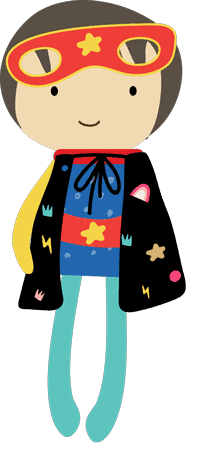Frequently Asked Questions

We understand it is a big decision deciding on how to best support your child or loved one. Often some of the questions we hear when supporting children and families, include how caregivers such as yourself can introduce play therapy to your child and support them along the way. We have included a few common questions and answers for you, below.
I have decided that I want to see a Play Therapist, what is the first step?
We will take the time to meet for our first session with the caregiver, and this will usually take between 90-120 minutes. This is called the Intake Meeting, and this is where we’re able to really talk with you about what is going on for child and includes a detailed discussion of all aspects of your child and family’s world.
This discussion and time together will then help us to decide how they may work most effectively with the you and your child, and what the treatment plan may look like. This is a truly collaborative process, and therefore works to utilise the insight and experience from parents and caregivers, as the most integral part of the therapy process. Research has found that parents who are able to engage and really participate in their child’s therapeutic journey, help to facilitate the most positive change, and form positive insight.
What should I tell my child about why he/she is coming to play therapy?
It can be helpful to help your child feel comfortable with the idea of meeting someone new and the reasons why you feel they may need some extra support. You can tell your child that they will be coming to a place with a special playroom and that they will be seeing (name of therapist).
You may like to tell your child that the playroom is a place where they are able to do most of the things they want to do and be who they feel like being. If your child asks why they are going to the playroom, you could say something like, when things are hard at school, home, or big changes (friends or at home), it can help to have a special place to play (you can adapt this communication depending on your own child and circumstances).
The circumstances may be a bit different if we are engaging an older child, as it may be more empowering for them to be part of the discussion, alongside their caregivers. We might ask that we have a chat together before we commence our intake, so we can make the right decision together.
How long and how frequent are CCPT sessions?
The structure and frequency of our Child Centred Play Therapy sessions tend to work most effectively when they are scheduled for 45 minutes, and these sessions will occur between the child and therapist. We can certainly accommodate our little ones as needed of course, as we recognise that younger children may settle in during a shorter session initially (for example 30 minutes).
We also recognise that some children may feel safer and more secure in the first session, with their caregiver very close by, sometimes even in the room initially.
Play sessions are usually held weekly, and ideally it is suggested that these occur at the same time and on the same day. This helps the child to adjust into the relationship and therapeutic process, and it also becomes their special play time – which they often grow to look forward to!
How long and how frequent are Dyadic sessions?
The structure and frequency of these play-based sessions are much the same as the individual sessions between the therapist and child. They ideally occur on a weekly basis, and for a duration of 45 minutes, and take place on consistent days and times to ensure predictability and prioritisation of therapy. This means that both child and caregiver can ensure this special play time is set aside.
Should I stay close when my child is in their session?
Children usually attend Play Therapy sessions on their own, however yes, it is important that you stay in the waiting area so that your child knows you are close by. Should your child become anxious they may come and check that you are still waiting, this is an important part of their process, and a sense of safety is created by knowing you are there.
What should I say or talk about with my child once the session is finished?
We recommend that you hold back from the urge to ask your child if they had fun during their play therapy session or any details about their session in the playroom. If your child shows a willingness to talk about it, and initiates discussion around their experience, that is absolutely fine. What we would suggest is that you respond positively and try your best not to ask questions about the session, just show a genuine interest, as we normally would as parents/caregivers. In turn, if your child does not seem like they want to talk about their session, just go with them and follow their lead. There may be times when the child wants to bring home a piece of art or craft they may have completed in the playroom, and we suggest you may want to acknowledge the details of the work created, for example the colours or shapes drawn, rather than praise the artwork itself. Whatever the child has created, it is of great value and is special because your child created it. This ensures the child’s able to take away that their work/effort is valued and appreciated, but not judged or appraised.
LINKS AND RESEARCH:
Research and Evidence Based Research for Child Centred Play Therapy:
www.evidencebasedchildtherapy.com
The American Association for Play Therapy
The Centre for Play Therapy
www.centreforplaytherapy.com.au
